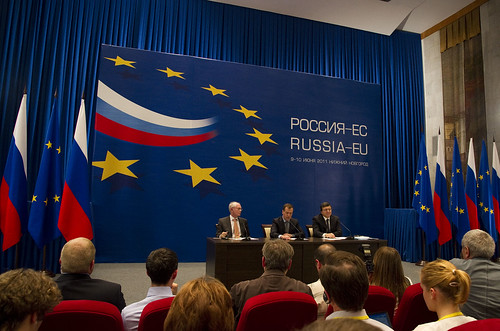
موسكو ــ في عام 1966، كانت رؤية شارل ديجول لأوروبا “التي تمتد من المحيط الأطلسي إلى جبال الأورال” استفزازية. واليوم يطرح الرئيس الروسي فلاديمير بوتن هدفاً أكثر طموحا: “إقامة سوق مشتركة تمتد من المحيط الأطلسي إلى المحيط الهادئ”.
في السباق نحو العولمة، أصبحت المخاطر كبيرة بالنسبة لكل من روسيا وأوروبا. وإذا استمرت روسيا على مسارها الحالي نحو التحول إلى منتج للمواد الخام فقط، فإنها لن تصبح عُرضة لتقلبات أسعار الطاقة العالمية فحسب، بل إن إمكاناتها العلمية والثقافية والتعليمية سوف تضمحل، وهو ما من شأنه أن يجرد البلاد في نهاية المطاف من نفوذها العالمي.
وإذا فشلت أوروبا من جانبها في الاستجابة لتحديات القرن الحادي والعشرين، فسوف تواجه ركوداً اقتصادياً مزمنا، وتوترات اجتماعية متزايدة، وعدم استقرار سياسي. بل إن أوروبا مهدده بخسارة مكانتها في الأسواق الدولية الأكثر جاذبية، مع هجرة الإنتاج الصناعي إلى شرق آسيا وبقاء الإبداع في أميركا الشمالية. ونتيجة لهذا فإن المشروع الأوروبي ذاته قد يصبح موضع تساؤل.
